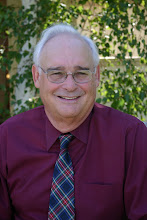Tuesday, July 13, 2010
Bakersfield KERO 23: John Hardisty, Ted James warn California farm land threatened
California government’s shortchanging of the state’s counties could lead to prime agricultural land being lost to farming, according to a report by Bakersfield television station KERO.
Reporter Felix Rodrigues Lima interviewed Ted James, the director of Kern County’s development services department, and his former counterpart with the City of Bakersfield, John Hardisty, who now operates the Bakersfield land-use consulting firm South Valley Solutions.
Both agreed that the state’s decision not to support the Williamson Act jeopardizes agricultural land preservation. The state has shortchanged counties and cities millions of dollars in promised tax subsidies.
One of several California counties that participate in the program, Kern County was supposed to receive $4.6 million in state “subventions.” Instead, it recently received only $133.22.
The paltry amount is Kern County’s share of just $1,000 left in the state budget for the program after last summer’s legislative hearings, instead of the $28 million that should have been allocated.
In exchange for reducing property taxes on farm land, the state for decades has promised to reimburse counties for lost tax revenues. But the state last summer reneged on that promise.
With California now nearly $20 billion in the budget hole, it is likely legislators and Gov. Arnold Schwarzenegger will do that again.
"Not receiving this annual payment is a major issue for the county," James said.
Hardisty told KERO that the Williamson Act is “consistent with policies of the state for compacting development, making sure they don't get too spread out and sprawled."
James called the state’s actions “contrary to the laws they have about preserving prime farmland. … On the one hand, you want us to preserve the land, but on the other, you're not giving us a financial incentive to do that."
Abandoning the program, which was created through an act authored by former Kern County Assemblyman John Williamson in the 1960s, is currently not an option for the county, James told KERO. Instead, it is monitoring how other agencies react, and looking for other sources of funding.
"One may be a user fee," he said. "Another could be some kind of transactional costs, one to enter the program, one to participate, and when you leave the program there's a cost as well."
Subscribe to:
Post Comments (Atom)


No comments:
Post a Comment